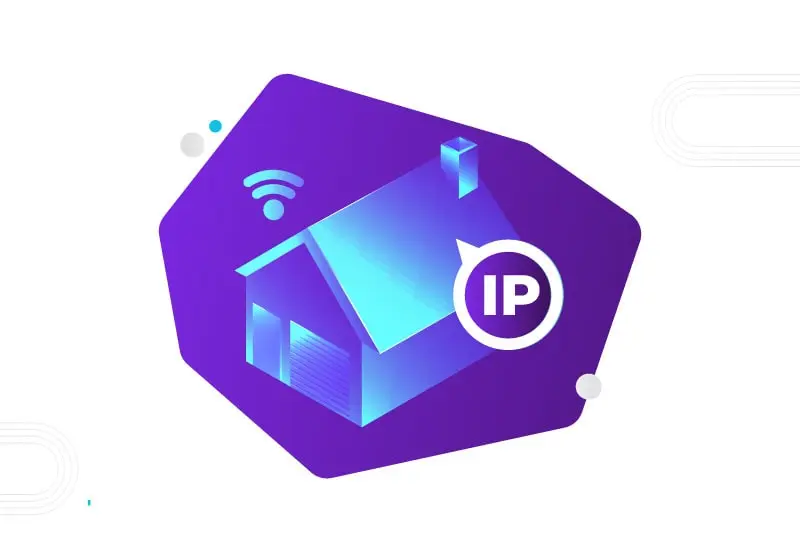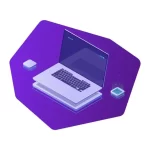In today’s interconnected digital world, where privacy and anonymity are highly valued commodities, individuals and businesses alike are constantly seeking innovative ways to protect their online presence. Enter the fascinating realm of residential proxies. But what exactly is a residential proxy? In this article, we will delve into the depths of this powerful tool, exploring its definition and shedding light on its immense potential.
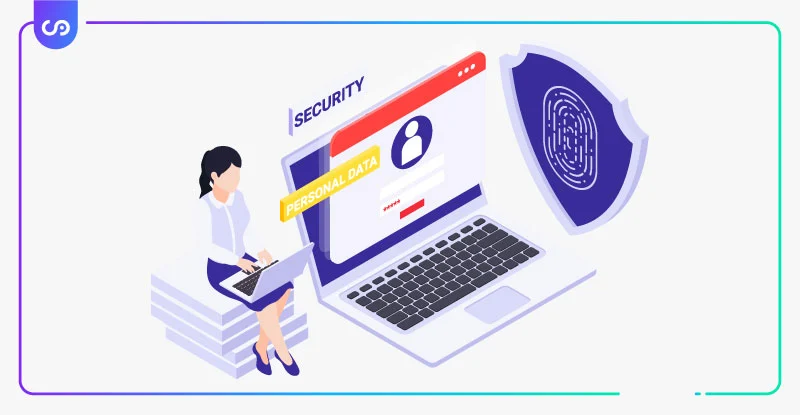
Whether you’re an avid web scraper, an SEO aficionado, or simply someone seeking to maintain a secure online footprint, understanding what a residential proxy is and how it can benefit you is crucial. So, fasten your seatbelts as we embark on an exhilarating journey through the realm of residential proxies, uncovering their inner workings and unveiling their myriad applications. By the end, you’ll be equipped with the knowledge to harness their true potential and revolutionize your online experience.
Understanding Residential Proxies
In the vast landscape of cyberspace, where information traverses at lightning speed, the concept of a proxy stands as a formidable guardian, protecting your online presence from prying eyes. But what exactly is a proxy? At its core, a proxy acts as an intermediary between you and the vast expanse of the internet, allowing you to browse the web while masking your true identity. It’s like having a trusted emissary who ventures forth on your behalf, shielding you from the watchful gaze of surveillance and enhancing your privacy.
When it comes to proxies, there is a multitude of proxy types to choose from, each with its own unique characteristics and applications. Data center proxies, for instance, operate from dedicated servers and provide anonymity by funneling your internet traffic through their network. While effective in certain scenarios, data center proxies lack the authenticity that real-world connections bring to the table.
This is where residential proxies come into play. Unlike data center proxies, residential proxies harness the power of genuine residential IP addresses assigned to real internet users. Picture a vast network of connections spread across various homes, each IP address representing an authentic online presence. By leveraging these residential proxies, you can navigate the digital realm as if you were an actual resident, seamlessly blending in with the diverse tapestry of internet users.
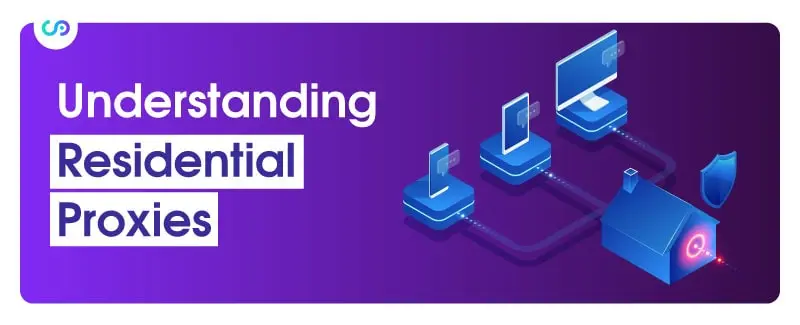
One of the key advantages of residential proxies lies in their ability to bypass the barriers erected by websites and online platforms. With residential proxies, you can overcome restrictions and access geographically restricted content with ease. Imagine streaming your favorite show that’s exclusive to a particular country or conducting market research by browsing region-specific websites, all while sitting comfortably at your own desk.
Furthermore, residential proxies offer an unparalleled level of security and anonymity. By routing your online traffic through residential IP addresses, these proxies obscure your real identity, making it difficult for malicious actors to track your activities or harvest your personal information. Whether you’re engaging in competitive research, web scraping, or simply safeguarding your privacy, residential proxies provide a robust shield against prying eyes.
Intriguingly, the world of residential proxies is not limited to a single network. There are various types of residential proxy networks, each with its own intricacies and advantages. Some networks operate through peer-to-peer (P2P) connections, where individuals willingly contribute their unused residential bandwidth, creating a decentralized network of proxies. Other networks rely on partnerships with internet service providers (ISPs), enabling them to access a vast pool of residential IP addresses and offer enhanced reliability and performance.
Now that we have delved into the definition of proxies and explored the different types, it is time to unveil the immense power and versatility of residential proxies. From web scraping to SEO strategies, these proxies open the door to a plethora of applications, revolutionizing the way businesses gather data, conduct market research, and optimize their online presence. So fasten your seatbelts as we embark on an exciting journey into the world of residential proxies, where privacy, accessibility, and online empowerment await.
How Residential Proxies Work
Residential proxies are a critical component of modern internet activities, providing users with enhanced online privacy and security. Understanding how residential proxies function is essential for optimizing their usage and reaping their benefits.
- Overview of the Residential Proxy’s Functionality: Residential proxies act as intermediaries between users and websites. Instead of using data centers, these proxies route traffic through real residential IP addresses, making them appear as regular users. This functionality helps mask the true identity of the user and enhances anonymity during online activities.
- Details on How Residential IPs are Obtained and Used: Residential IP addresses are sourced from actual residential devices, such as home computers or mobile devices, that willingly share their connection. Proxy providers often build vast networks of these legitimate residential IPs to offer a diverse pool of proxies to their users. When a user makes a request through a residential proxy, it appears as if it is originating from a real residential device, making it challenging for websites to detect and block such traffic.
- Comparison of Residential Proxies with Other Types of Proxies: Residential proxies differ from data center proxies and other types of proxies in their IP origin. While data center proxies come from data centers and are easier to detect, residential proxies blend in with regular user traffic due to their genuine IP source. This distinction makes residential proxies more reliable and effective for tasks like web scraping, accessing location-specific content, and bypassing geo-restrictions.
In the next sections, we will delve deeper into the advantages of using residential proxies, explore various use cases, and provide insights into selecting the best residential proxy provider to cater to your specific needs. Let’s continue our journey into the world of residential proxies and their significance in the online realm.
How to Use Residential Proxies
Now, let’s dive into the practical realm and explore how to harness their power effectively. Whether you’re a seasoned web scraper, an SEO maven, or a curious explorer venturing into uncharted territories, understanding the intricacies of utilizing residential proxies is essential to maximize their benefits.
Setting up and configuring residential proxies may seem daunting at first, but fear not. With the right guidance, you’ll be up and running in no time. Most residential proxy service providers offer user-friendly interfaces or detailed documentation to assist you through the setup process. It typically involves obtaining your unique authentication credentials and configuring your chosen application or software to route traffic through the residential proxy.
Once your residential proxies are up and running, you gain access to a myriad of powerful features, including proxy rotation and IP management. Proxy rotation allows you to switch between different residential IP addresses seamlessly, emulating the natural behavior of regular internet users. This rotation not only enhances your privacy but also helps overcome rate limits imposed by websites or platforms, ensuring uninterrupted access to the desired content. With IP management tools provided by residential proxy service providers, you can conveniently monitor and manage your pool of residential IPs, ensuring optimal performance and avoiding blacklisted or overused addresses.
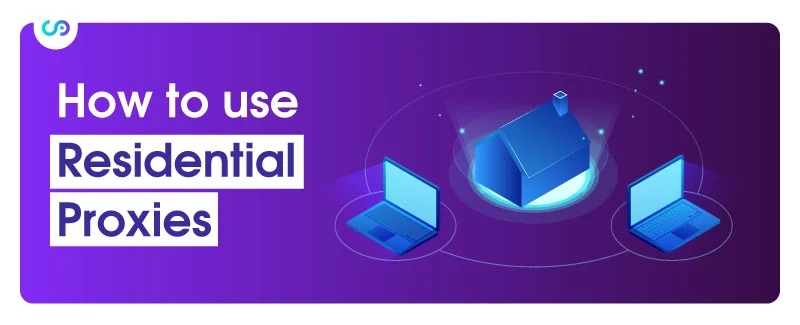
But how can you leverage the prowess of residential proxies in real-world applications? Let’s explore some popular use cases. For web scraping enthusiasts, residential proxies are a game-changer. They enable you to extract vast amounts of data from websites without triggering alarm bells. By rotating through different residential IP addresses, you can scrape data at scale, all while maintaining the appearance of a genuine internet user. This opens doors to endless possibilities, from market research and competitor analysis to lead generation and content aggregation.
If you’re involved in search engine optimization (SEO), residential proxies become indispensable tools in your arsenal. They allow you to perform location-specific SEO checks and track search engine rankings from different regions. With the ability to mimic user behavior from specific locations, you can gain valuable insights into how your website appears in search results across the globe, enabling targeted optimizations and strategic decision-making.
Moreover, residential proxies find their place in social media management, digital advertising, and e-commerce activities. By utilizing proxies with different geographic locations, you can test ad campaigns, ensure your content is accessible worldwide, and gather valuable market intelligence for effective targeting.
It’s important to note that while residential proxies offer numerous benefits, it’s crucial to use them responsibly and adhere to the terms and conditions set by websites and platforms. Maintain ethical practices, respect the privacy of others, and avoid engaging in activities that may infringe upon legal or ethical boundaries.
With the knowledge of how to set up, configure, and utilize residential proxies in various applications, you’re now equipped to venture into the realm of boundless possibilities. Unleash the power of residential proxies and witness firsthand how they transform your online endeavors into seamless, secure, and efficient experiences.
Residential Proxy Networks
At the core of a residential proxy network lies a collection of real residential IP addresses, each tethered to a physical location—a home, an apartment, a dormitory. These IP addresses, unlike their data center counterparts, paint a vivid picture of genuine internet users, blending seamlessly with the vast tapestry of online interactions. By harnessing the power of these real-world connections, residential proxy networks provide a gateway to a whole new realm of possibilities.
Advantages of utilizing a residential proxy network are manifold. First and foremost, they offer unrivaled authenticity. As data flows through residential IP addresses, it mimics the natural behavior of genuine users, making it difficult for websites or platforms to distinguish between real and proxy-generated traffic. This authenticity not only enhances privacy but also minimizes the risk of being blocked or flagged as suspicious, ensuring uninterrupted access to the desired content.
Another significant advantage lies in the diverse pool of IP addresses available within residential proxy networks. With countless addresses spanning different regions, cities, and even countries, you can effortlessly traverse the globe, bypassing geographical restrictions and accessing region-specific content. Imagine unlocking a treasure trove of localized information, streaming exclusive shows, or conducting market research tailored to specific demographics, all with the click of a button.
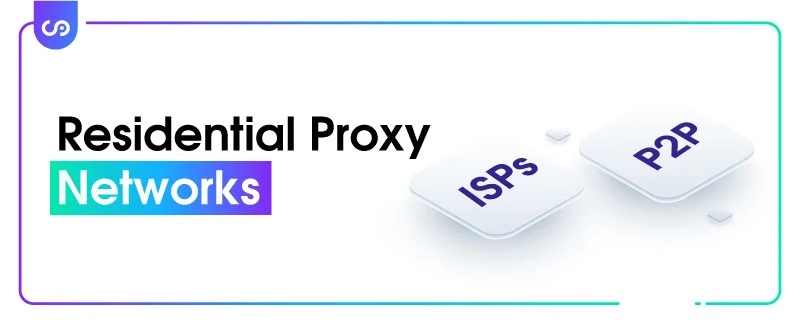
Residential proxy networks come in various forms, each with its own unique characteristics and advantages. Peer-to-peer (P2P) residential proxy networks harness the power of individuals who willingly contribute their unused residential bandwidth, creating a decentralized network of proxies. This collaborative approach ensures a diverse range of IP addresses, with constant updates and an ever-expanding network.
On the other hand, partnership-based residential proxy networks rely on established relationships with internet service providers (ISPs). By partnering with ISPs, these networks gain access to a vast pool of residential IP addresses, offering enhanced stability, reliability, and performance. This collaboration allows for seamless scalability, ensuring a consistent and reliable proxy experience.
Whether you choose a P2P or partnership-based residential proxy network, one thing remains certain: the boundless opportunities they present. From web scraping and data gathering to market research and content localization, these networks empower individuals and businesses to explore, innovate, and thrive in the ever-evolving digital landscape.
As you navigate the vast expanse of the internet, the power of residential proxy networks remains hidden in plain sight. Behind each click, each request, lies a network of residential IP addresses, shrouding your activities in anonymity, unlocking new realms of accessibility, and opening doors to the unexplored. So, embrace the power of residential proxy networks and embark on a journey of endless discovery, where the boundaries of the online world become mere illusions, and the possibilities are as vast as the stars in the night sky.
Residential Proxy Services
In the digital age, where privacy and online security are paramount, residential proxy services emerge as the guardians of our virtual identities, offering a gateway to anonymity, protection, and limitless possibilities. But what exactly are residential proxy services? Let’s dive into their definition, functions, and the key offerings they bring to the table, empowering individuals and businesses to navigate the digital realm with confidence.
A residential proxy service like Upproxy acts as the bridge between you and the vast network of residential IP addresses. They serve as the trusted gatekeepers, providing access to a pool of authentic, real-world connections that seamlessly blend with the online landscape. These services act as the backbone, ensuring reliable, secure, and efficient proxy connections for a multitude of applications.
One of the primary functions of a residential proxy service is to manage and maintain the infrastructure of the residential proxy network. They work tirelessly behind the scenes, collaborating with individuals or partnering with internet service providers (ISPs) to source and curate a diverse collection of residential IP addresses. This careful curation ensures that the proxies remain up-to-date, reliable, and in compliance with industry standards.
Residential proxy services offer a range of key features and offerings designed to enhance your proxy experience. First and foremost, they provide a vast selection of residential IP addresses spanning multiple regions, cities, and even countries. This diversity allows you to navigate the web as a true global citizen, accessing localized content, conducting market research tailored to specific demographics, and staying one step ahead in an interconnected world.
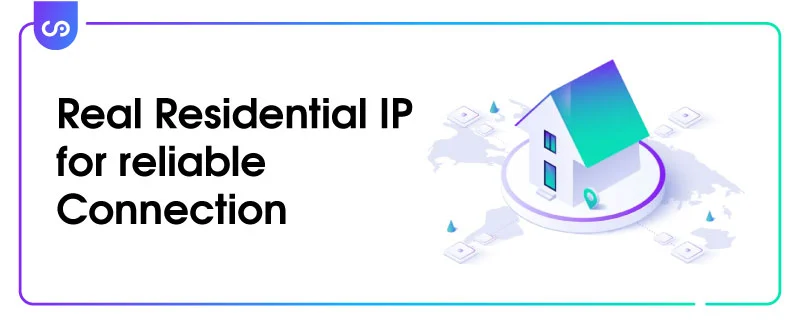
Moreover, residential proxy services often provide essential tools and features for effective proxy management. These include proxy rotation, enabling seamless switching between different residential IP addresses, ensuring a dynamic and authentic online presence. With built-in IP management, you can monitor and manage your pool of residential IPs, ensuring optimal performance and avoiding overused or blacklisted addresses.
Another valuable aspect of residential proxy services is their commitment to user support and customer satisfaction. Reputable providers offer responsive customer support, assisting users with technical issues, setup processes, and general inquiries. This support ensures a smooth and hassle-free experience, empowering users to make the most of their residential proxies.
Selecting the right residential proxy service for your needs is crucial. Factors to consider include the reliability and stability of their proxy network, the availability of a wide range of residential IP addresses, the quality of customer support, and competitive pricing plans. It’s important to assess the reputation and track record of the service provider, as well as to read reviews and testimonials from other users to make an informed decision.
With the power of residential proxy services at your fingertips, you gain an unparalleled level of control, privacy, and accessibility in the digital landscape. Whether you’re a data-driven business seeking competitive intelligence, an SEO professional optimizing your online presence, or an individual safeguarding your personal information, residential proxy services empower you to navigate the online realm with confidence, anonymity, and limitless possibilities.
So, step into the realm of residential proxy services and unleash the true potential of your online endeavors. Embrace the power of authentic connections, protect your digital footprint, and pave your path to success in a world where privacy and security are paramount.
Residential Proxy Server
A residential proxy server acts as the intermediary between your device and the websites or online platforms you interact with. It stands as the virtual sentinel, channeling your internet traffic through a network of real residential IP addresses, seamlessly blending your online presence with the vast tapestry of genuine internet users.
Unlike data center proxy servers, which operate from fixed locations and use IP addresses associated with server farms, residential proxy servers harness the power of real residential IP addresses assigned to actual homes, apartments, or dormitories. This authenticity is the secret sauce that allows you to navigate the web incognito, concealing your true identity and providing an extra layer of protection against prying eyes.
The operations of a residential proxy server are both intricate and fascinating. When you send a request to access a website or an online service, your request is intercepted by the residential proxy server. Acting as a middleman, it relays your request through one of the available residential IP addresses in its network, making it appear as if the request is coming from a genuine residential user.
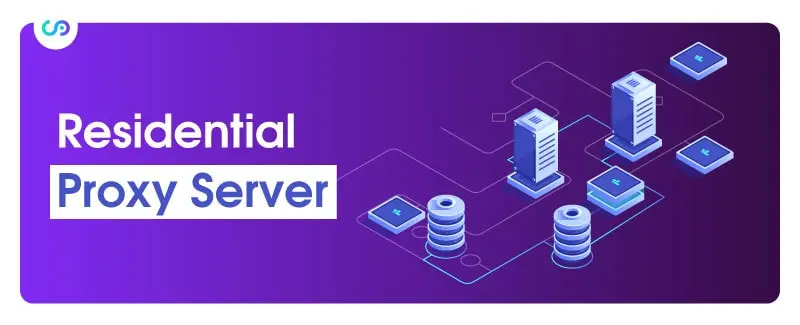
The residential proxy server continuously rotates through different residential IP addresses, emulating the behavior of regular internet users and avoiding suspicion. This rotation not only enhances your anonymity but also ensures a smooth and uninterrupted browsing experience, as websites and platforms are less likely to impose restrictions or block proxy-generated traffic.
It’s important to note that residential proxy servers are not limited to a single server location. The server infrastructure is often distributed across various geographical regions, allowing for a wide selection of residential IP addresses from different parts of the world. This geographical diversity enables you to access region-specific content, overcome geographical restrictions, and gain a global perspective on the online landscape.
Now, let’s delve into the key distinctions that set residential proxy servers apart from other types of proxies. Unlike data center proxies, which offer a higher degree of speed and stability, residential proxy servers prioritize authenticity and privacy. The use of genuine residential IP addresses ensures a lower risk of detection by websites or platforms, as your online activities closely resemble those of real users.
Residential proxy servers also differ from SOCKS or HTTP proxies, which can be used for various purposes but lack the inherent authenticity of residential connections. By leveraging residential proxy servers, you gain the ability to perform web scraping, engage in e-commerce activities, conduct market research, and navigate through geo-restricted content with confidence, all while maintaining the cloak of authenticity.
Conclusion
In a world where privacy and security are paramount, understanding the power of residential proxies becomes indispensable. We have embarked on a journey through the realm of residential proxies, exploring their definition and uncovering the multitude of possibilities they offer. We’ve learned that a residential proxy acts as the bridge between your device and the online world, utilizing authentic residential IP addresses to provide a cloak of anonymity and protection. By understanding how to use residential proxies effectively, you gain access to a myriad of applications, from web scraping and SEO optimization to market research and content localization. With every click, every interaction, residential proxies empower you to navigate the digital realm with confidence, authenticity, and limitless potential. So, embrace the power of residential proxies, unlock new horizons, and step into a world where privacy and control are yours to command.
FAQs
What is a residential proxy?
A residential proxy is an intermediary server that routes your internet traffic through real residential IP addresses, providing anonymity and mimicking the behavior of genuine internet users.
How would you define a residential proxy?
A residential proxy can be defined as a proxy server that utilizes authentic residential IP addresses to facilitate online activities, ensuring privacy, security, and seamless browsing experiences.
How can I use residential proxies?
Residential proxies can be used for various purposes, including web scraping, search engine optimization (SEO), accessing geo-restricted content, and enhancing online privacy and security.
What are the benefits of using residential proxies?
Using residential proxies offers advantages such as enhanced privacy, bypassing geographical restrictions, accessing region-specific content, and minimizing the risk of being blocked or flagged by websites or platforms.

